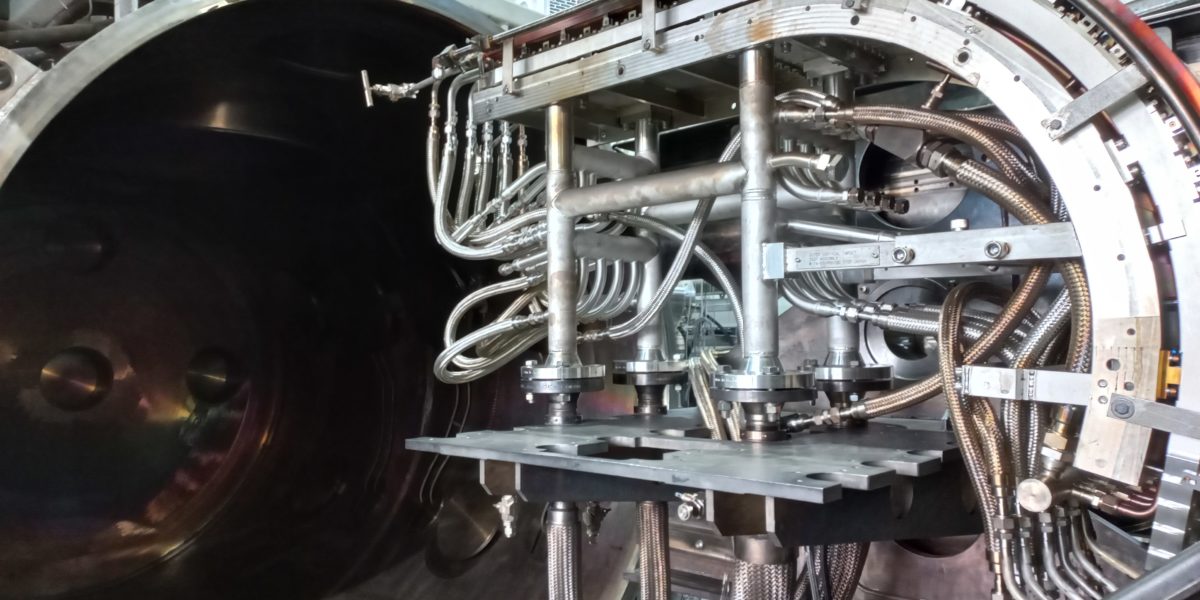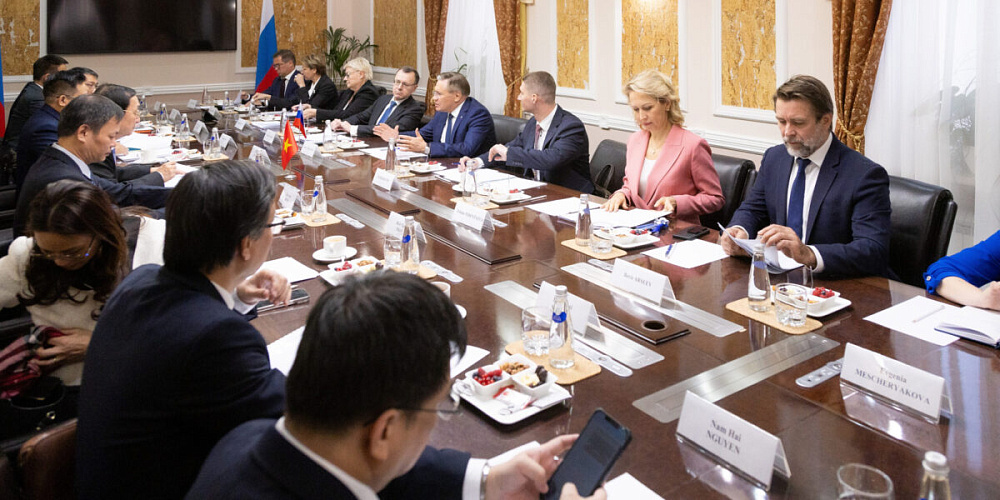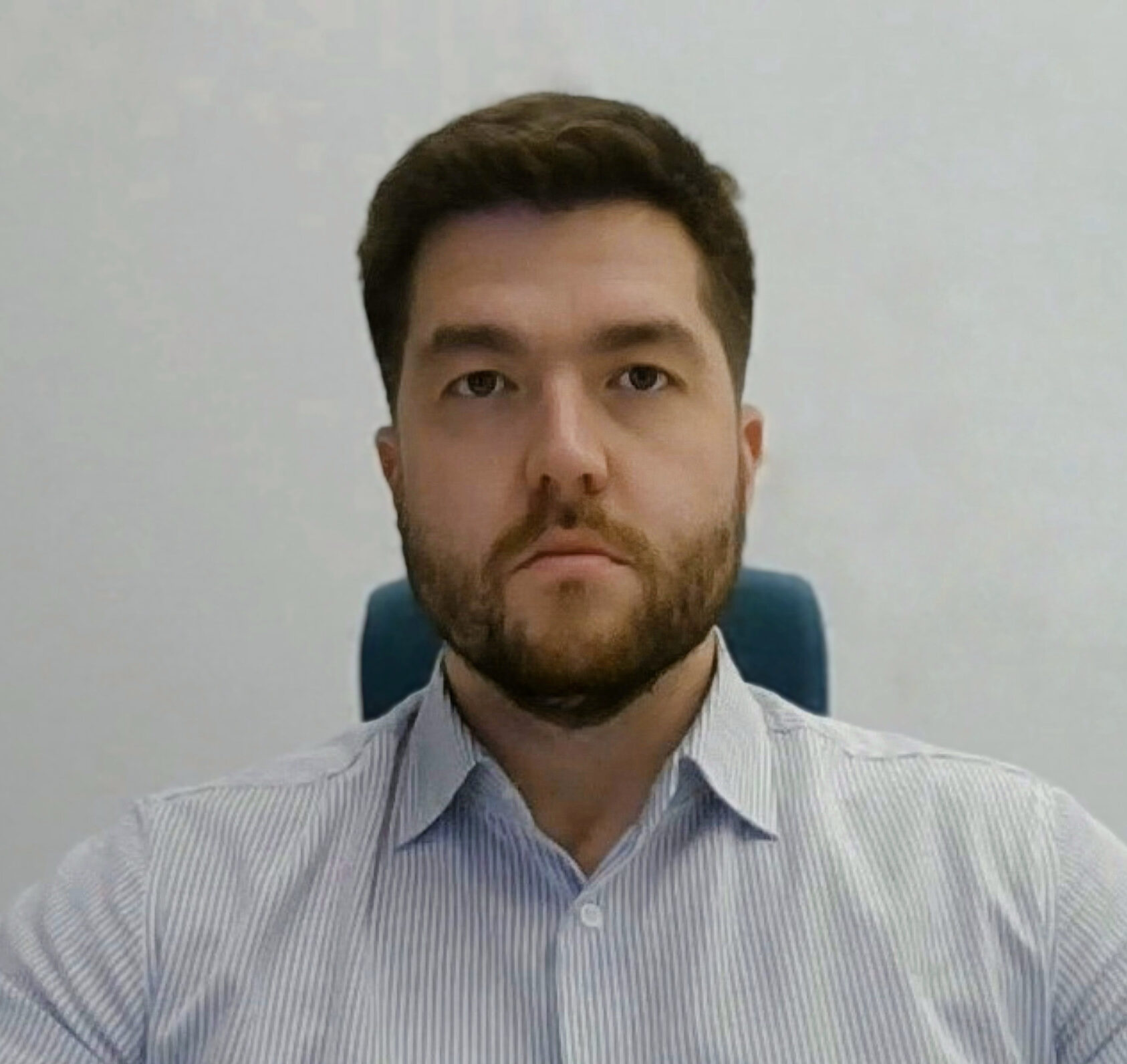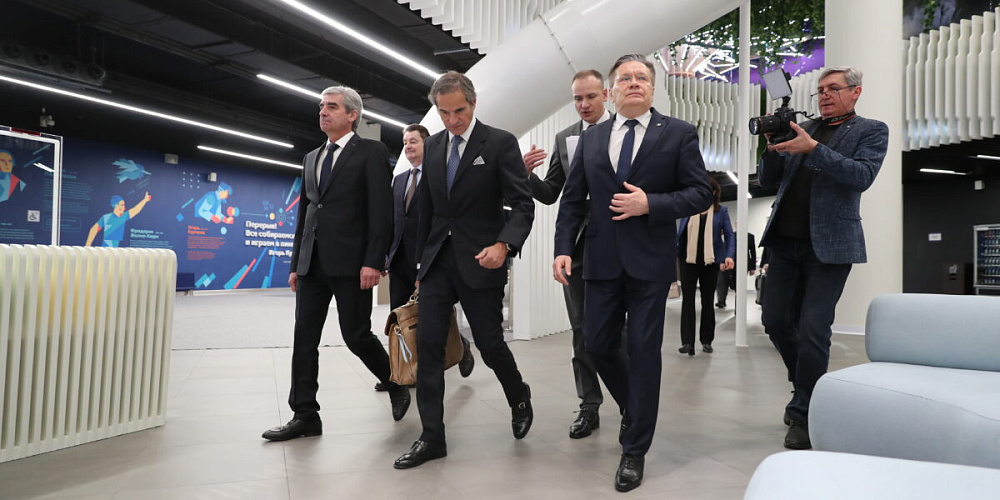The D.V.Efremov Institute of Electrophysical Apparatus (JSC NIIEFA, a Rosatom enterprise) has successfully completed a cycle of high heat flux tests of foreign equipment for the International Thermonuclear Experimental Reactor (ITER).
Since April 2023, specialists from JSC NIIEFA have been conducting a series of high heat flux tests of plasma facing units (PFUs) of full-scale prototype of outer vertical target of ITER divertor. These tests were carried out on the unique Russian IDTF (ITER Divertor Test Facility) stand, in accordance with the commitments of the Russian Federation within the ITER project.
The Japanese test assembly, consisting of eight prototype divertor PFUs, successfully withstood by 6000 test cycles with heat loads ranging from 5 to 20 MW per square meter. The test results confirmed the compliance of the Japanese PFUs with the highest requirements of the ITER Organization.
According to Anatoly Krasilnikov, Director of the private institution " Project Center ITER " (part of Rosatom State Corporation), "these tests confirm not only the ongoing active international cooperation within the ITER project but also the high level of Russian scientific centers and qualifications of domestic specialists." He also added, "The competence of Russian physicists and engineers in the field of thermonuclear research is recognized worldwide, which is why testing of not only Russian but also foreign in-vessel reactor elements is carried out in our country."
Previously, a series of similar high heat flux tests were conducted on both Russian and foreign equipment at the IDTF facility. In particular, all plasma facing units of the Russian full-scale prototype of Dome divertor (manufactured by JSC NIIEFA), which has already been delivered to the ITER Organization, were tested at the St. Petersburg test stand. Last year, eight plasma facing units for serial Domes were successfully tested.
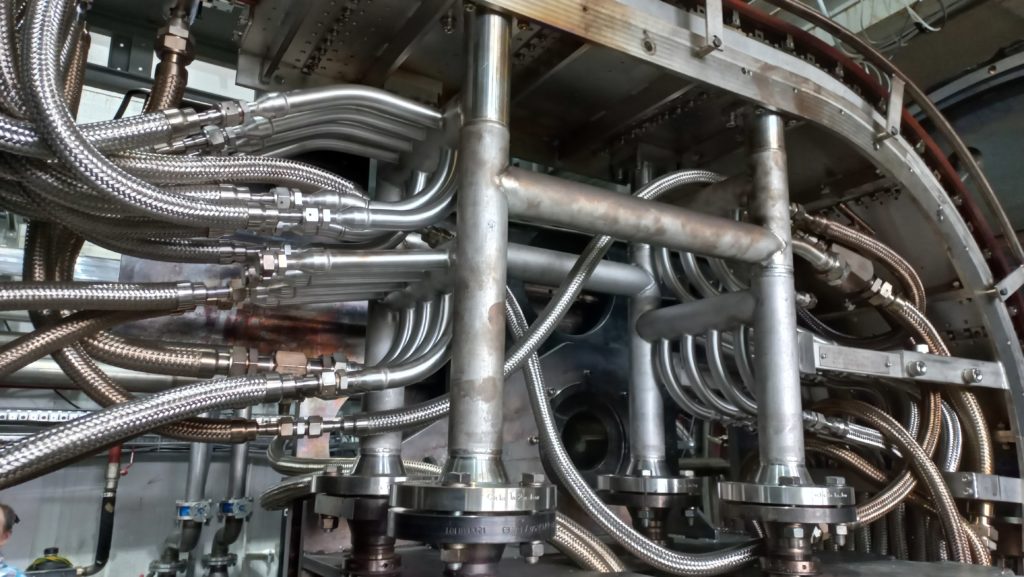
Reference
ITER is the world's first international thermonuclear experimental reactor project, being built by the international community in Provence, France, near Marseille. The project's goal is to demonstrate the scientific and technological feasibility of using thermonuclear energy on an industrial scale, as well as to develop the necessary technological processes. The private institution " Project Center ITER," part of the State Atomic Energy Corporation "Rosatom," serves as the Russian national ITER Agency responsible for Russia's contribution to the project.
Cyclic thermal testing of plasma-facing elements is a mandatory requirement of the ITER Organization and an integral part of fulfilling the Agreements on the supply of divertor components - one of the most important elements of the future installation.
JSC NIIEFA is a Rosatom enterprise and a leading scientific, design, and production-stand center in the Russian Federation for creating electrophysical installations and complexes to solve scientific and applied problems in the field of plasma physics, atomic and nuclear physics, elementary particle physics, healthcare, radiation, and energy technologies, and introscopy. The installations created at the institute are successfully operated in many organizations and enterprises in Russia, CIS countries, Bulgaria, Hungary, Germany, Egypt, India, China, Cuba, the United States, Finland, France, Japan, North Korea, and South Korea.
The choice of JSC NIIEFA as a site for thermal testing of both Russian and foreign plasma-facing components of ITER is due to the significant experience of Russian specialists and the unique characteristics of the IDTF facility created at the Rosatom enterprise, which can create conditions that are as close as possible to those of an operating reactor.
Despite the sanctions pressure and restrictions imposed on our country, Russia continues to fully fulfill its obligations within the framework of the International Thermonuclear Experimental Reactor (ITER) project. The main contribution of the Russian Federation lies in the development, manufacturing, and delivery of 25 systems for the future machine. The shipment of unique Russian equipment as part of the joint implementation of the ITER project is carried out on time and in full accordance with the reactor construction schedule.

